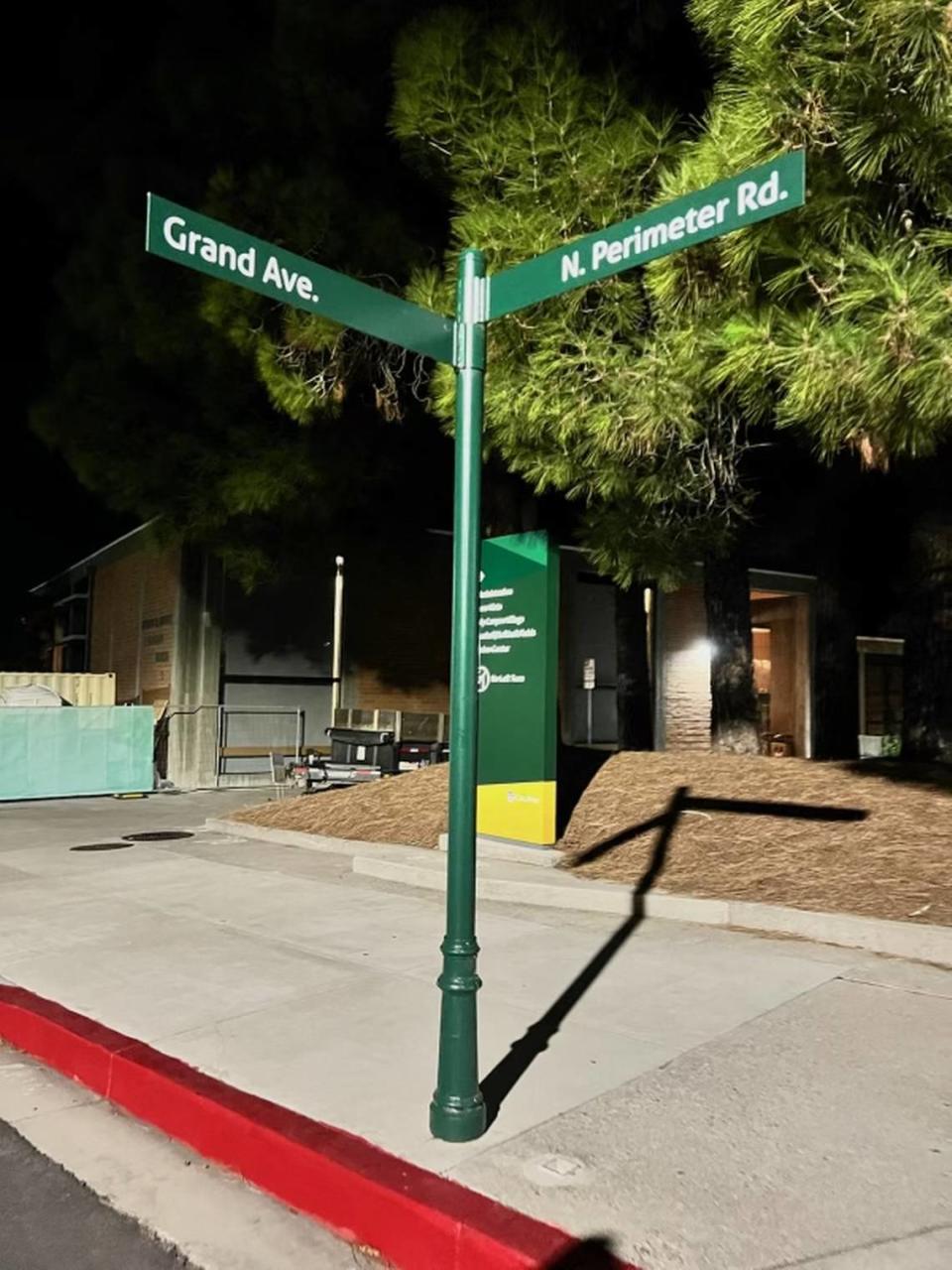‘What are we going to do?’ Jurors in Kristin Smart murder trial speak out for first time
The jurors who convicted Paul Flores for the murder of Cal Poly student Kristin Smart were forbidden to talk about the case with anyone — not even each other — for more than three months.
That was the hardest part, four of Paul Flores’ jurors told The Tribune.
The jurors spoke on the condition on anonymity to protect their privacy around the high-profile case but agreed to be identified by their juror numbers.
“It’s very traumatizing to go through something like that,” Juror 273 told The Tribune. “Having nightmares, experiencing something, and not be able to tell each other, ‘This is what we’re going through. This is what I’m feeling. This is what I’m thinking. Is this normal?’”
The jurors convicted Flores on Oct. 18, more than two decades after Smart disappeared when she left an off-campus party. A separate jury acquitted Flores’ father, Ruben Flores, of helping his son conceal the crime.
Coping with the horrors of the case and the pressure of their decision completely alone, the jurors said, affected nearly every aspect of their lives.
It also created friendships that outlasted the length of the three-month trial.
The jurors said they talked about “literally anything and everything else” outside of the case and continue to keep their groupchat alive despite not spending eight hours in court together anymore.
Food was a passion many of the jurors shared, as were their kids and families.
“We just learned a lot about each other,” Juror 209 said.
Nearly 1,500 people screened for Kristin Smart jury
When Juror 86 arrived at jury selection in July, she didn’t think much of it. She had served jury duty two times before, and the number of people in her selection time seemed typical.
She didn’t realize at the time there were several rounds of jury selection. In total, nearly 1,500 Monterey County residents were screened as potential jurors.
Juror 174 said she and her husband were both called into jury duty for the case. Curiously, they were asked to arrive in different rounds.
“I knew that there was something weird,” Juror 174 said.
Two of the jurors who spoke to The Tribune work for local governments, and the other two are self-employed, which they said allowed them to serve for three months without a great financial burden.
Juror 174 said she had remembered hearing something about the case when Smart first went missing but didn’t recall any details about it before the trial started. The other jurors The Tribune spoke with hadn’t heard about the case.
Smart’s murder has haunted San Luis Obispo County since 1996, when she first went missing. Flores has been the prime suspect in the case for just as long but wasn’t arrested until April 2021.
The jurors said they realized the significance of the case as soon as the trial started in Monterey County Superior Court on July 18.
There were two defendants with separate attorneys and two juries.
Also, they hadn’t expected the family or several members of the media to attend the trial every day.
“As it was starting, I feel scared,” Juror 86 said. “I felt like, ‘I’m going to have a big job. I didn’t think it was going to be this big.”
The jurors said they all remained open and neutral as they absorbed the evidence throughout the trial. Some scribbled notes. Others sketched witnesses and courtroom moments. And the rest didn’t take notes at all.
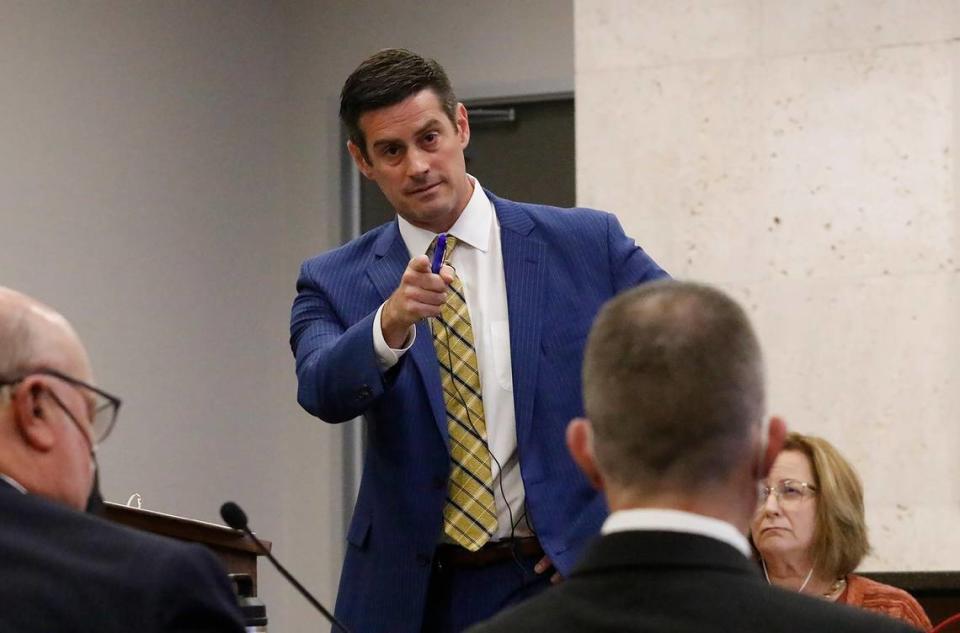
How jurors coped with trauma of case
It was difficult to cope with the facts of the case, the jurors said. They weren’t allowed to talk about what they were going through — feelings included — with anyone.
There was no way to process the trauma they were hearing and how it was affecting them.
It strained family relationships greatly, the jurors said, especially marriages. Juror 174, who said she and her husband had been struggling previously, came home from court one day to find a divorce petition in her email.
She said the trial became a sort of escape for her at that point, but the feelings all compounded outside the courtroom.
The other three jurors, who are also married, said their relationships became strained because the emotions inside the courtroom would affect their mood outside of it.
Worse, when their husbands, family or friends would ask them what’s wrong, they couldn’t talk about it.
One day, Juror 86 said, her daughter came home from school. She was excited to tell her mom about what she learned in class — the Smart case.
“I just walked away,” the juror said. “And got out of the house.”
Juror 273 spent a lot of time with her animals as an outlet, while Juror 209 said she “did a lot of walking.”
Despite the emotional toll it took to not talk about the case and how it affected them, the jurors said they were never tempted.
“I never had any desire to talk to somebody outside of court because I felt like such a huge responsibility to the family of the victim that this took 26 years to get court,” Juror 174 said. “I don’t want to be the reason they screw this up.”
Juror 273 believes there needs to be a court-appointed counselor for jurors in order to help them process their emotions and manage their mental health during traumatic cases.
But according to the Judicial Council of California, all cases must be decided only on the evidence presented in the courtroom. Discussing the case with anyone outside of it could influence a juror’s decision-making.

Some unsure of Paul Flores’ guilt on first day of deliberations
When the jurors entered the deliberation room on Oct. 4 after a 12-week trial, Juror 209 said it was a feeling of relief.
“It was just a big sigh of, ‘We could finally talk about it.’ ”
One by one, the jurors shared their thoughts about the case and the different pieces of evidence presented by the defense and prosecution.
At the end of the first day of deliberations, nine jurors wanted to convict Flores of Smart’s murder. Three others were on the fence.
There was limited physical evidence and, most notably, no body.
Juror 174 said this annoyed her because one of the questions she and other potential jurors were asked during jury selection was if they would be able to convict someone without a body.
“I really was sick inside,” Juror 174 said of the stress of deliberations. “It’s a lot of pressure, and the pressure for me was that we had to come with the right decision. And three people don’t agree with us. What are we going to do?”
Juror 273 was one of the three people on the fence.
She said she remained neutral throughout the trial — even when she cried out loud in reaction to a soil stain found at Ruben Flores’ home that prosecutors said was a result of Smart’s body being buried there.
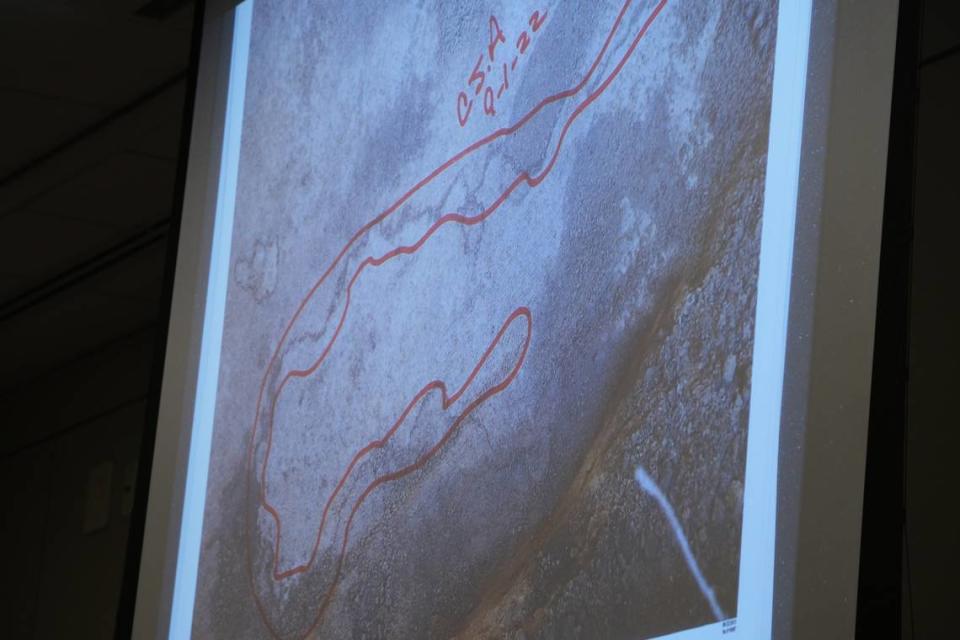
The reaction prompted the court to take a recess, and the defense unsuccessfully attempted to remove her from the jury.
Juror 273 said that was the first evidence she saw that made her think Flores could be guilty. That said, she didn’t make up her mind in that moment.
Her mind still wasn’t made up at first in the deliberation room.
Juror 273, and the other two jurors on the fence, had to make sure there was enough circumstantial evidence to outweigh not having a body.
That’s what they went over during four days of deliberations.
The jurors said they went through every witness in the trial — more than 50 people — and pinpointed parts of testimony that stuck out. Jurors said they also constantly referred to the jury instructions Monterey County Superior Court Judge Jennifer O’Keefe gave them.
“We all wanted to make sure that whatever decision we came to, we all agreed on,” Juror 273 said. “We all did it personally on our own.”
According to the jurors, the most important pieces of evidence were the testimonies of the two women who said Flores raped them following Smart’s disappearance, and the soil evidence found at Ruben Flores’ home.
The jurors said the women who testified that Flores raped them established a pattern and made them believe Flores attempted to rape or raped Smart before her death.
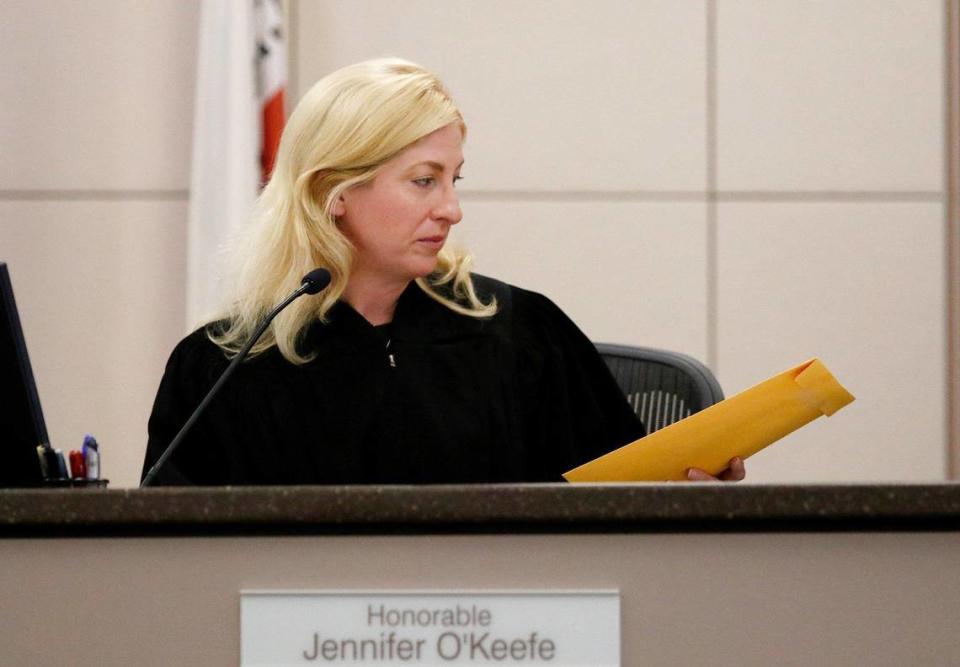
Jurors describe verdict day: ‘A whole different vibe’
The morning of Oct. 18, the jurors knew they were reaching a verdict.
But walking into the courtroom that day for the verdict reading, Juror 209 said, was “a whole different vibe.”
“I was nervous,” Juror 209 said. “It just felt like the tension was so thick in that building. And I don’t know if it was just because of me and the way I was feeling with having to sit in the same courtroom as somebody we just convicted of first-degree murder, or if everyone knew that the verdict was out so everybody was anxious to hear it.”
Juror 174 said she was anxious about how the verdict would play out in court, but it was gratifying walking to her car after it was read.
“I think we were just like running to just get out of there,” Juror 174 said, “because it was just too much.”
The verdict reading was exciting, Juror 86 said, but as soon as she left court for the last time, she felt “jittery” and overwhelmed.
“I got home and I sat down in my bed and I wanted to cry,” Juror 86 said, “But I couldn’t.”
That’s when her husband came in, and they could finally talk about what she’s endured for the past three months.
“So was he guilty?” Juror 86’s husband asked her.
“Definitely.”
He then asked, “Was it the Kristin Smart case?”
To which Juror 86 responded, “Yes.”
“I knew it,” her husband said. “That’s why you were so stressed out.”
“It was such a relief to be able to talk to him about it,” Juror 86 said.
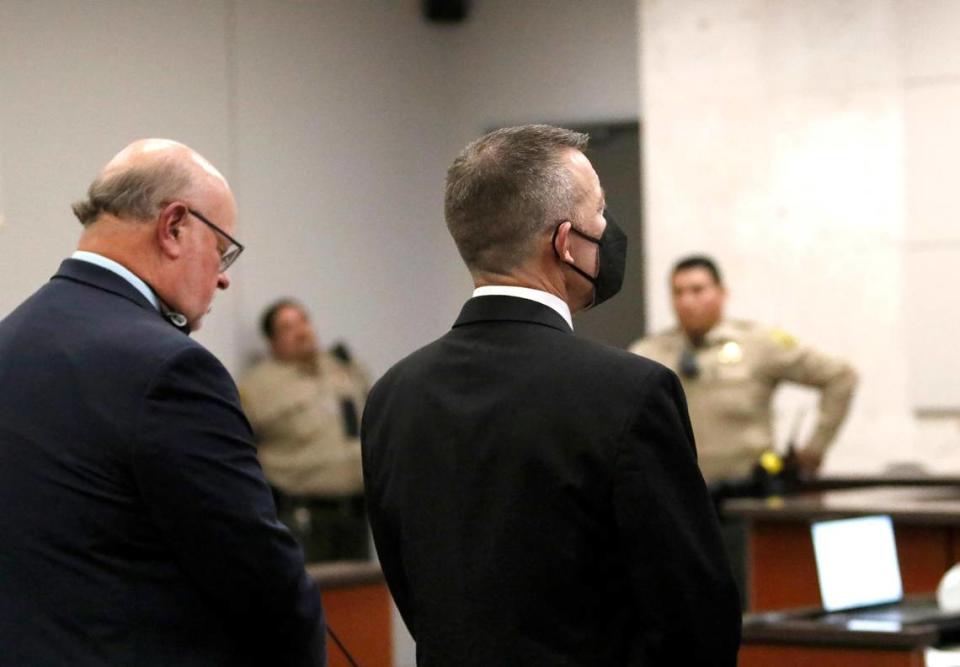
News coverage and podcast ‘solidified’ decision, jurors say
Juror 209 said she looked up the “Your Own Backyard” podcast, which was mentioned several times throughout the trial for the part it played in cracking the Smart case, as soon as she sat in her car after the verdict.
She then began reading news articles from the trial, and started listening to the podcast, hosted by Chris Lambert, the next day.
“It just solidified how accurate my decision and how I felt so strongly that my decision was a correct decision with the verdict that we gave,” Juror 209 said.
Jurors shared news articles and their thoughts on “Your Own Backyard” in their group chat, all taking in information at their own pace.
Juror 174 said she already believed the jury’s verdict was correct, but listening to the podcast and reading news articles about Flores’ conduct that weren’t shown in court made it clear there was “no reason to feel remorse in any direction for this guy.”
“I started to actually get mad at the whole justice system,” Juror 174 said, “feeling like we’re better off a defendant than a victim.”
The fact Flores was free for 26 years despite being the only suspect in the case, which allegedly allowed him to rape several women, makes Juror 273 feel “really unsafe.”
“It does not make any sense to me that somebody like that can be able to get away with so many things,” Juror 273 said. “If somebody like that can, how many other people are out here doing that?”
She said she found more reassurance with the jury’s decision as she learned more information about the case.
“It did give us peace of mind to be able to hear and to know actually the facts and the truth, news and the podcast,” Juror 273.
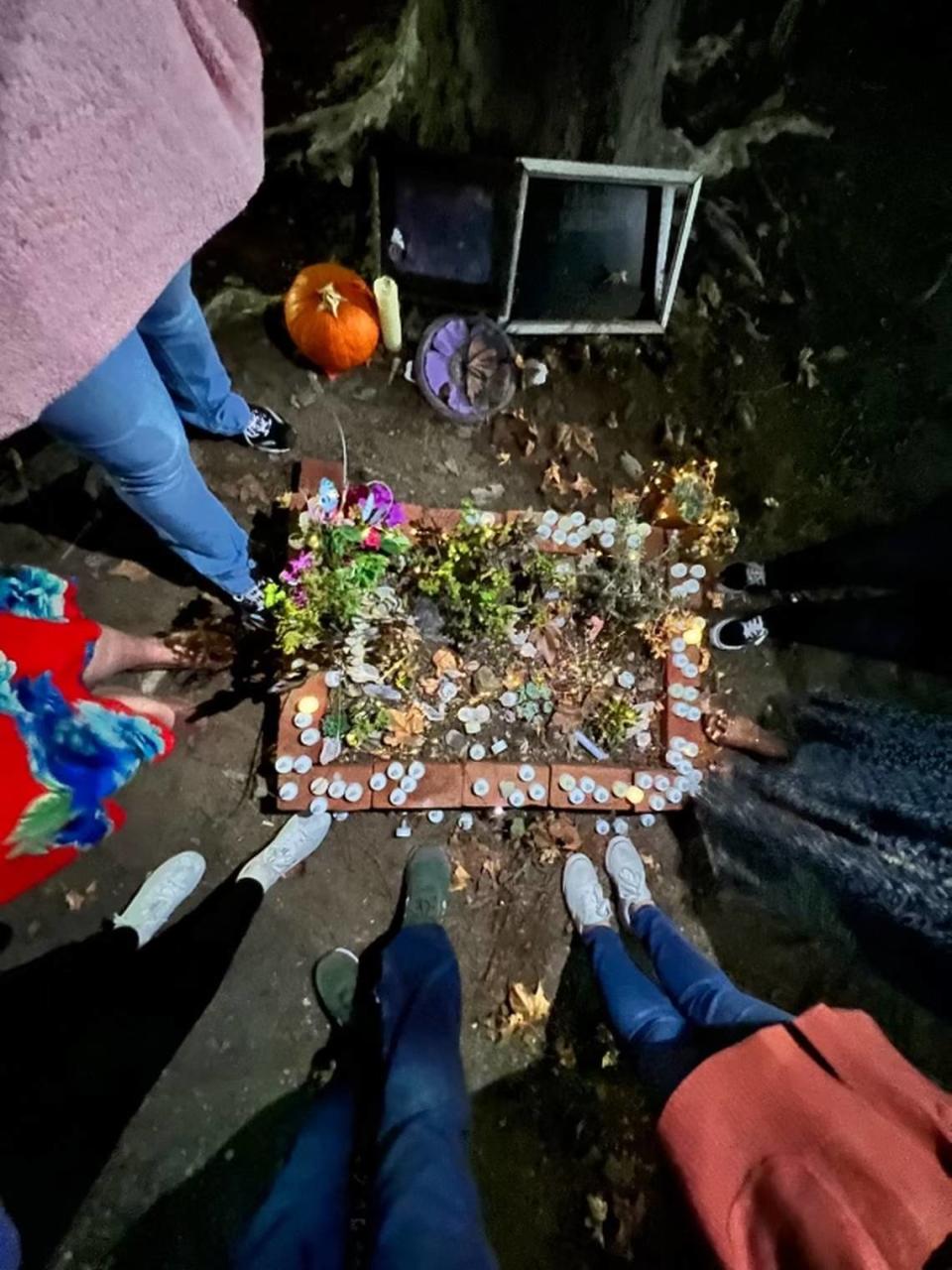
Jurors continue to seek justice for Kristin Smart
A group of jurors, including the four The Tribune spoke with, attended the sentencing on March 10. They wanted to see the impact of their decision through to the end and be reassured the defense’s motion for a new trial didn’t succeed.
Juror 209 said they also were there to confirm the past three months of their lives weren’t a “waste.”
She said witnessing the sentencing provided a much-needed sense of closure.
Juror 86 was curious if Flores would have a reaction to the sentencing — he didn’t — and also wanted to reconnect with her fellow jurors.
The group of jurors have met with Lambert, the “Your Own Backyard” podcast host, multiple times. They decided to reach out after listening to his podcast because of the substantial work he did for the case.
In one of their meetings, Lambert led them on the walk from the party house where Smart was last seen to her dorm, and visited a small memorial on campus.
The jurors said the walk reconnected them to the case, and to Smart. Some were parents whose kids are getting ready to leave for college.
They hoped visiting the campus would give them closure. Instead, it put them in the shoes of Smart’s family, who have said there won’t be true justice for their daughter until her body is found.
The jurors feel the same, and said they will do anything they can to help find Smart.
